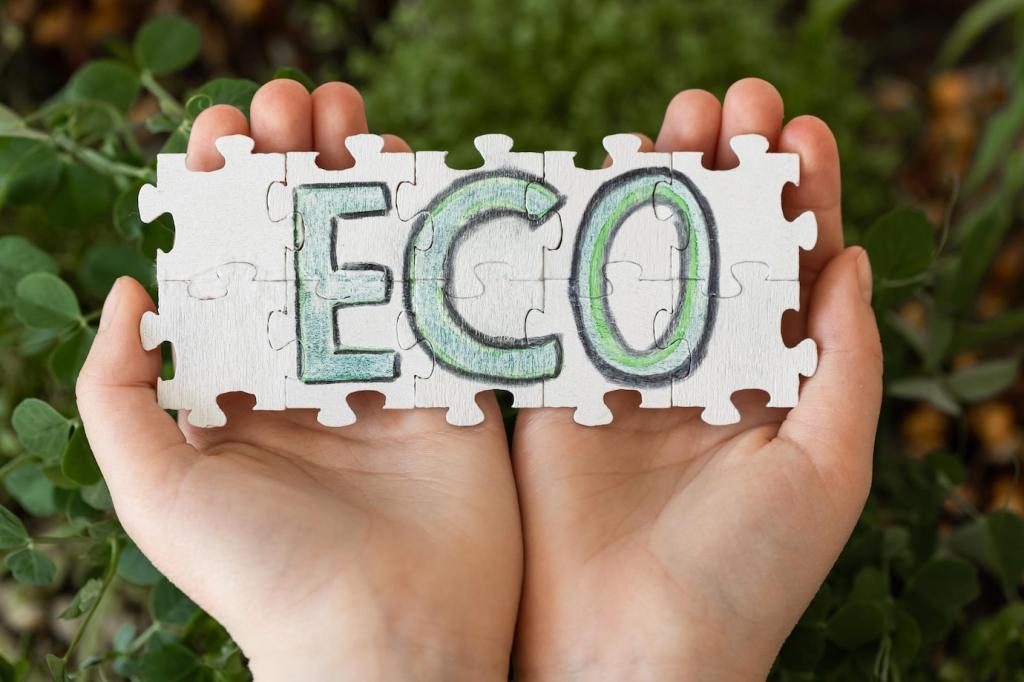Leveraging Language to Support Sustainable Lifestyles
Subtle wording matters: “plant-rich” meals sound inviting and flexible, while “strict vegan” can feel exclusive to newcomers. Saying “bring your cup for fresher flavor” beats “no disposable cups allowed.” Share a phrase that nudged you to try something greener, and subscribe for weekly micro-phrases that make the next sustainable step effortless.

Conversations That Invite, Not Shame
Micro‑Affirmations at Home and Work
A simple “I love how you set the reusables by the sink—made it so easy for everyone” turns one smart move into a team norm. Praise specific actions, not people’s virtues. Try one affirmation today and tell us how it landed; we’ll compile your examples into a community conversation guide.
Better Questions Spark Better Answers
Instead of asking, “Why don’t you go car-free?” try, “When would a bike or bus feel convenient for you?” This invites feasibility, not defense. Collect three open-ended questions you can use this week, then share your favorite in the comments. We’ll highlight the most practical, kind prompts in our newsletter.
A Dinner Table Lesson in Permission
At a family dinner, suggesting “plant-first plates, with meat as a flavor” softened resistance far better than “meatless Monday.” Same idea, gentler entry. Language can lower threat and keep choices joyful. What phrase has eased tough conversations for you? Add it below and subscribe for more real-life scripts.
Designing Signage, Labels, and Defaults
Make Sustainable the Tasty Default
Menu copy like “Chef’s favorite: vibrant plant-rich bowl” outperforms “vegan option.” Put the sustainable choice first, with flavor-forward words. Defaults matter too: offering dairy‑free milk by default, with dairy upon request, quietly raises adoption. Snap a sign that works and share it; we’ll build a community gallery of great wording.
Carbon Labels That People Understand
Plain language beats jargon: “This meal emits about 1 mile of driving” is more concrete than grams of CO₂. Pair numbers with relatable analogies and color cues. Have you seen a carbon label that clicked instantly? Describe it below and subscribe for our template pack of human-friendly climate labels.
Recycling Instructions People Actually Follow
Clarity wins: “Empty. Rinse. Cap on.” with simple icons reduces contamination better than dense paragraphs. Celebrate success: “Last month you kept 120 pounds from landfill—thank you.” Positive feedback sustains effort. Share your building’s best bin signage and we’ll feature it in a roundup of small words making big differences.
Digital Language: Emails, Captions, and Prompts
Try “Save on energy before dinner” instead of “Important sustainability update.” Offer a concrete benefit and a short time frame. Place the verb early and promise one clear action. Comment with a subject line you’d open immediately; we’ll A/B test community favorites and share results with subscribers.
Language for Kids, Classrooms, and Families

A teacher read “Our Borrowed Planet,” describing Earth as a library book we care for before returning. Suddenly, students treated supplies as treasures to steward. Share a metaphor a child loved, and subscribe to receive printable story starters for bedtime chats about caring, sharing, and repairing.
Inclusive, Cross‑Cultural, and Accessible Wording
Ditch jargon like “circularity roadmaps.” Try “repair, share, and reuse plans.” Translate key materials and test comprehension, not just correctness. When people understand, they act. Share a phrase you simplified at work and how it landed; let’s build a shared glossary of clear, welcoming sustainability language.
